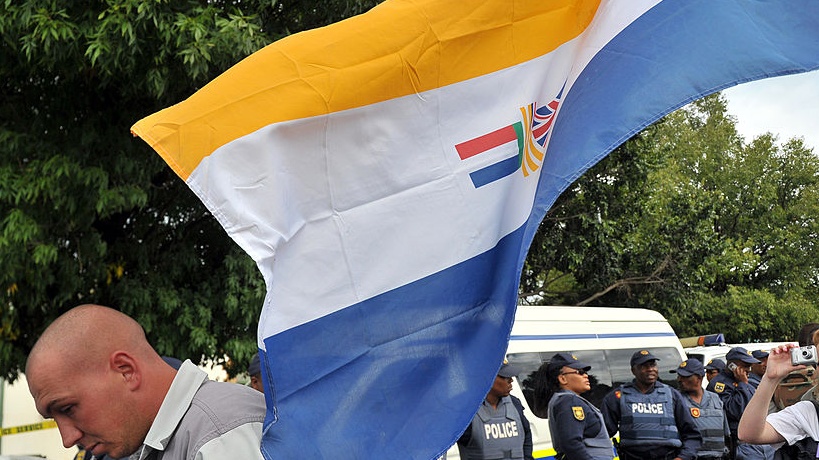South Africa’s Equality Court has ruled that the public display of the apartheid flag is now considered illegal and will be considered a hate crime.
In October 2017, white South African farmers sparked protests after alleging that a “white genocide” was happening throughout the country after an increase of farm murders, reports News24. The rallies were referred to as the Black Monday protests. During the unrest, protesters openly displayed the apartheid flag, an ugly symbol of the African nation's history of racial segregation, ensuing anger among many South Africans.
The case was brought to the Equality Court by the Nelson Mandela Foundation, who argued the flag’s display is a direct act of hate speech, as defined under South Africa’s Constitution. Conversely, the lobby group AfriForum refuted the NMF’s claim, stating that banning the flag would violate the right to freedom of expression.
“Those who display the old flag choose … oppression over liberation,” Equality Court Judge Phineas Mojapelo said in his ruling. “Any gratuitous display of the old flag demonstrates a clear intention to be hurtful, harmful and incites harm, promotes and incites hatred against black people in terms of the Equality Act.”
Media Statement: No more gratuitous displays of the Apartheid flag – Equality Court https://t.co/UIYk3SOxu0
#MoreThanAFlag
pic.twitter.com/W3pmFdACw3— NelsonMandela (@NelsonMandela) August 21, 2019
Stating that the public display of the apartheid flag deeply infringes on South Africans’ human rights, Mojapelo ruled that a “carefully guided prohibition” of the symbol is now in effect.
In a statement, the Nelson Mandela Foundation said: “All South Africans have a reason to be relieved and to celebrate today’s judgment as it affirms our rights to not suffer hate speech, our rights to dignity and our rights to a meaningful freedom of speech.”
The court's ruling marks a turning point as the country continues to heal from the effects of apartheid. Introduced in 1948, apartheid demanded the institutional separation of different racial groups throughout the country. Rooted in white supremacy, the government-mandated segregation oppressed Black South Africans, causing staunch voter oppression, blocked land apportions and discriminatory practices in access to resources and institutions. However, after 46 years, with the election of peaceful revolutionary leader Nelson Mandela, apartheid came to end on April 27, 1994.
